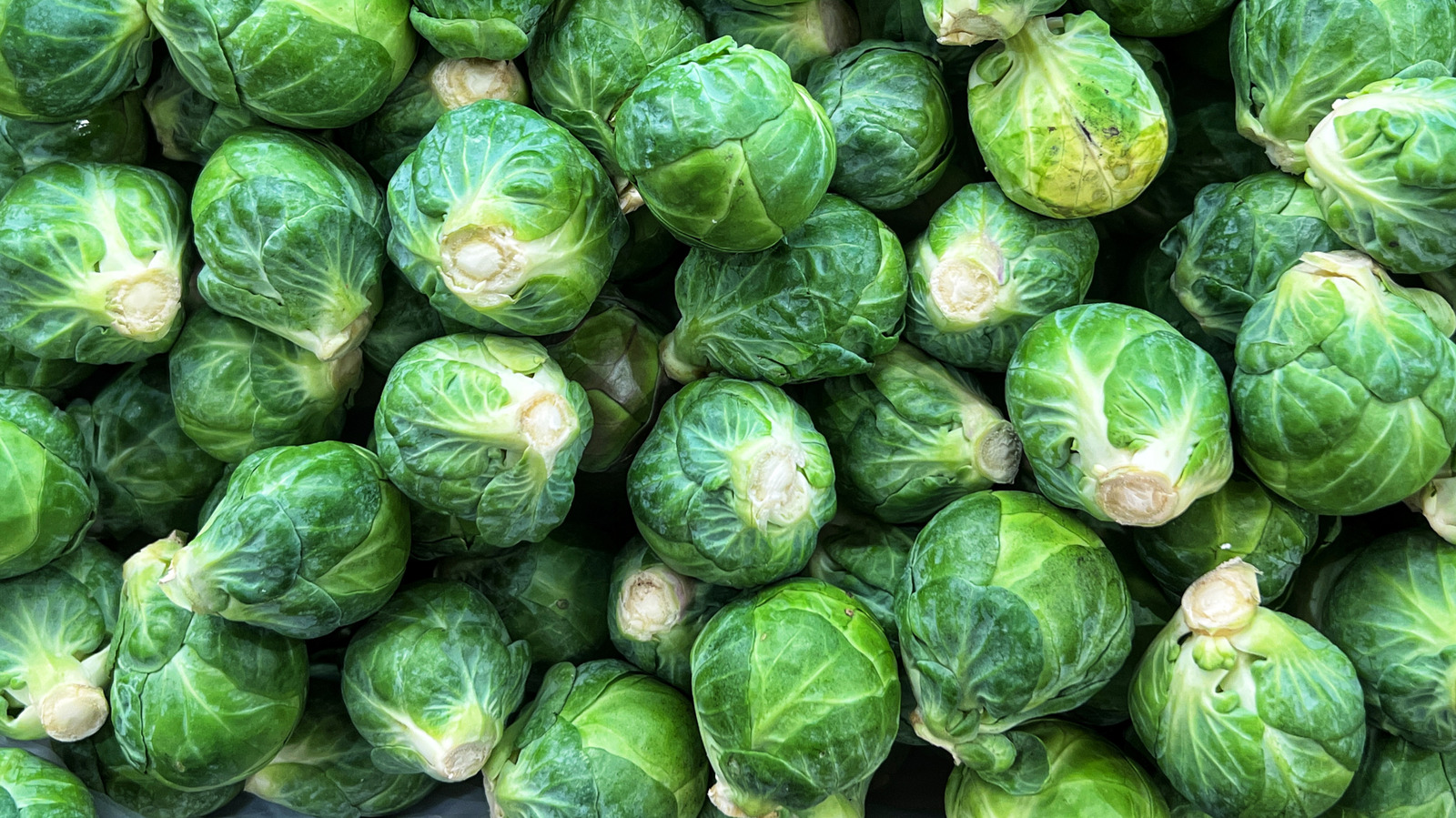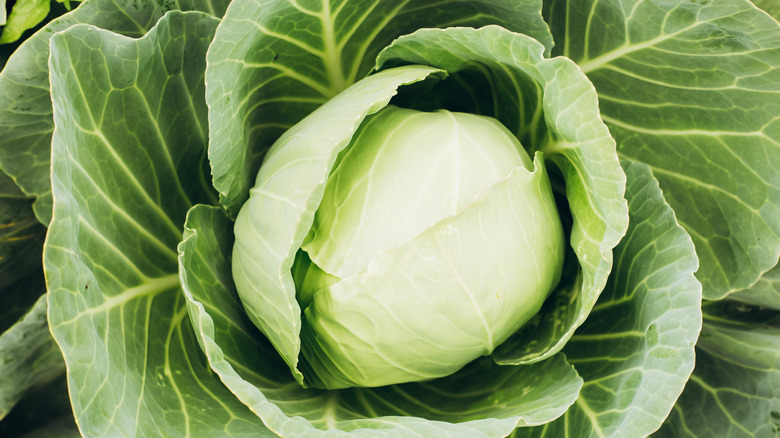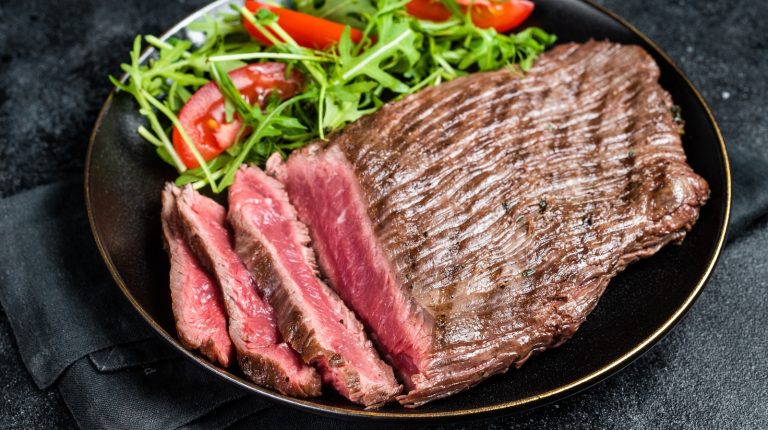The similarities between Brussels sprouts and cabbage are undeniable. They’re both comprised of thick, flexible, tightly packed leaves that add a pleasant crunch to salads and slaws. These veggies are also packed full of vitamin C, vitamin K, and fiber, making them a tasty addition to a nutritious diet. Both are also members of the Brassicaceae or mustard family, along with arugula, broccoli, cauliflower, and kale. Despite this list of shared characteristics, however, cabbage and Brussels sprouts are two distinctly different vegetables.
While baby cabbages can be quite small, they’d never be mistaken for Brussels sprouts in a garden, as sprouts grow on a tall, thick central stalk and cabbages grow nestled close to the ground. These two veggies also taste quite different. Though there are many different, delicious varieties of cabbage, most of them deliver a sharp, peppery bite with a hint of sweetness when eaten raw. When cooked, the sweetness deepens, and the spicy taste mellows into an almost buttery flavor.
Though Brussels sprouts also have bitter notes, it’s sulfurous or “funky” rather than sharp. They’re also quite a bit sweeter than cabbages, which is why Brussels sprouts work well with a variety of popular flavors, from bacon and parmesan cheese to balsamic vinegar. These ingredients help hide a little of the funk, while bringing out sprouts’ sweeter, more palatable undertones. This is also why they’re often roasted, as the dry heat helps caramelize their sugars and lightly char some of the leaves for a temptingly toasted flavor.
Substituting Brussels sprouts for cabbages and vice versa?
Whether you’re craving braised cabbage and only have sprouts on hand or simply dislike one of these leafy brassicas, there’s no hard and fast rule that says you can’t swap one for the other. However, keep in mind that they each have their own distinct flavor, and may have different textures, depending on how you’re using them. It’s important to account for this when considering whether you can use one in place of the other in your recipe.
Additionally, not all varieties of cabbage can be used the way sprouts are. For instance, Napa cabbage should never be roasted as it’ll just fall apart, making it a poor substitute for roasted sprouts. However, green cabbage holds up well to roasting, becoming crisp on the outside, tender inside, and developing an earthy, savory flavor. It’d make a decent stand-in for Brussels sprouts in a pinch, you just might have to adjust your seasonings, as green cabbage is less sweet.
Similarly, Brussels sprouts are a tasty addition to typically cabbage-forward recipes like stir-fries, certain casseroles, and international dishes like Hungarian cabbage and noodles. Again, you may have to increase the acid or savory seasonings to account for flavor differences, but your dish will likely still be a hit. However, sprouts aren’t great for raw applications like slaws, as some find them hard to digest in raw form. In this case, it’s best to wait until you have cabbage on hand.





